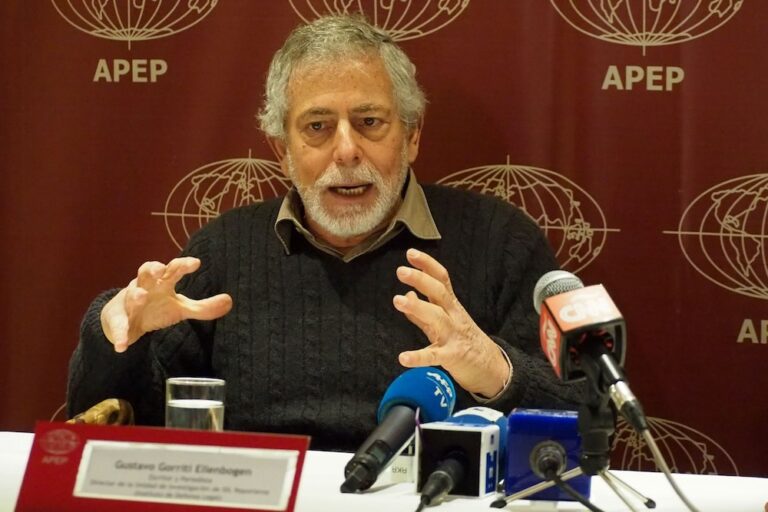(IPYS/IFEX) – On 18 March 2008, Mariela Balbi, a columnist for the “El Comercio” newspaper, reported that on 10 March, the Peruvian National Police (Policía Nacional del Perú, PNP) sent her a notorised letter demanding that she provide proof of an allegation in one of her articles within 72 hours, and threatening legal action if […]
(IPYS/IFEX) – On 18 March 2008, Mariela Balbi, a columnist for the “El Comercio” newspaper, reported that on 10 March, the Peruvian National Police (Policía Nacional del Perú, PNP) sent her a notorised letter demanding that she provide proof of an allegation in one of her articles within 72 hours, and threatening legal action if she fails to do so.
In an opinion piece dated 26 February, Balbi stated that a certain sector of the police, working in areas of the country in which drug-trafficking is common, has been corrupted by drug mafias. In the article, Balbi wrote that, among other institutions, “the police has been penetrated by drug-trafficking,” referring to their work in the Valle del Río Apurímac Ene (VRAE) region.
Even though this very issue has been covered in other media, and even though the police have dismissed various officials from their posts for their complicity with drug mafias, the police first responded to her article with a letter in which they reproached her for being “irresponsible” and demanded that she retract her article. Balbi responded to that letter, saying that although there indeed were honest police officers, the issue of widespread corruption could not be ignored.
The PNP letter and Balbi’s response were both published in “El Comercio”. The police responded by sending a second letter, on 10 March, demanding proof of her allegations and threatening legal action.
IPYS condemns the action by the police; in Peru, there is no such thing as a crime of opinion. IPYS urges the authorities to retract their demands and threat, which undermine the right to free expression enshrined in the Constitution.


